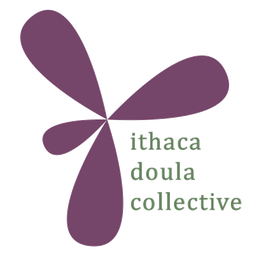What is a birth doula?
Birth Doulas have extensive birth training specifically to provide physical and emotional support for you and your partner in labor. They generally provide 1-3 prenatal visits, provide continuous care for your entire birth and then provide 1-2 postpartum visits. They come with many tricks in their toolbox for labor support, acupressure, rebozo techniques, massage, positions, etc. They can take the pressure off you having to know everything, and give you partner breaks during a long labor. As a non-medical provider, your doula is not there to play intermediary between you and your provider. They will, however, provide lots of evidence and best practices so you can make the best decisions for you.
What can we do for you? A LOT- with a wide range of variation!
Doulas support all types of birth through non-judgmental care
Support you in person or virtually
Doulas support hospital birth and the care provided by midwives, OBs and nurses!
Provide childbirth education
Provide continuous physical and emotional support during labor
Help parents with transition into the hospital during labor
Support patients with a huge range of coping strategies and labor tricks
Improve health of birth giver with nutritional support and education
Provide email, phone check in, and home visits
Have strong relationships and trust with patients
Have big picture view of what is going on in their lives
Offer massage, acupressure, and other body work
Counseling support for their transition into parenthood
Postpartum follow up- day 3, 2 weeks, 6 weeks Postpartum
At home PPD assessment
At home breastfeeding/chestfeeding support assessment and referral when necessary
Ability to catch obstacles that might need referrals (counseling, and family therapy, postpartum doula support, cleaning services, etc.)
Encourage good communication with providers
Newborn care education
Support with postpartum adjustment
Support with processing and integrating birth experience for parents
24 hour on-call availability up to 7 weeks for each family
Provide back-up structure if doula is unable to attend birth
Offer lower cost and sliding scale fees when appropriate
Doula care is sometimes covered by insurance and flex spending programs
AND MORE
What do the studies tell us about birth?
Physical Benefits:
Fewer requests for epidurals (60%), narcotics (30%)
Reduced use of pitocin
Reduced duration of labor (25%)
Fewer forceps deliveries
Reduced use of vacuum extraction
Reduced cesarean section rates (50%)
Neonate hospitalization and rate of complications reduced
Reduced chances of maternal fever and infection
Reduced maternal bleeding following birth
Increased chance of spontaneous vaginal birth
Psychological Benefits:
Birth Givers report more positive reviews of their birth experience
Reduced levels of anxiety
Birth Givers have higher regard and increased sensitivity towards babies
Birth Givers feel more secure and have more confidence
Reduced incidence of post-partum depression
